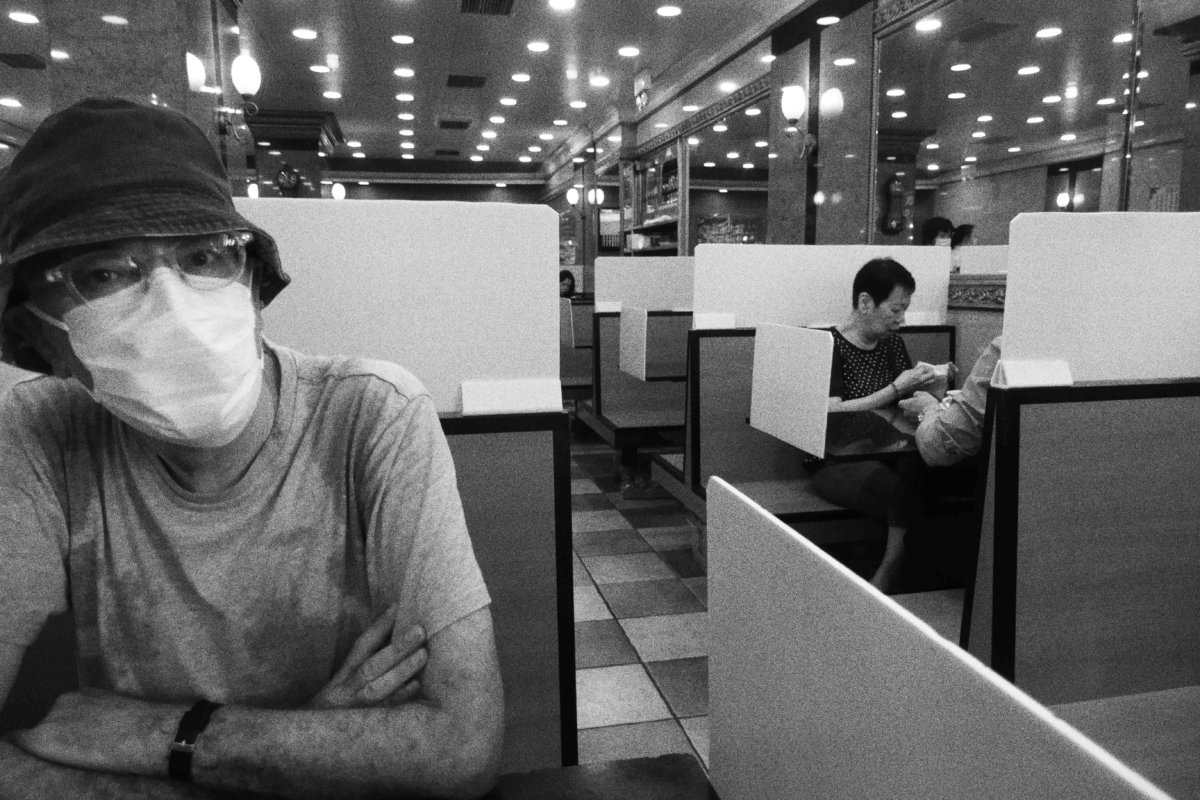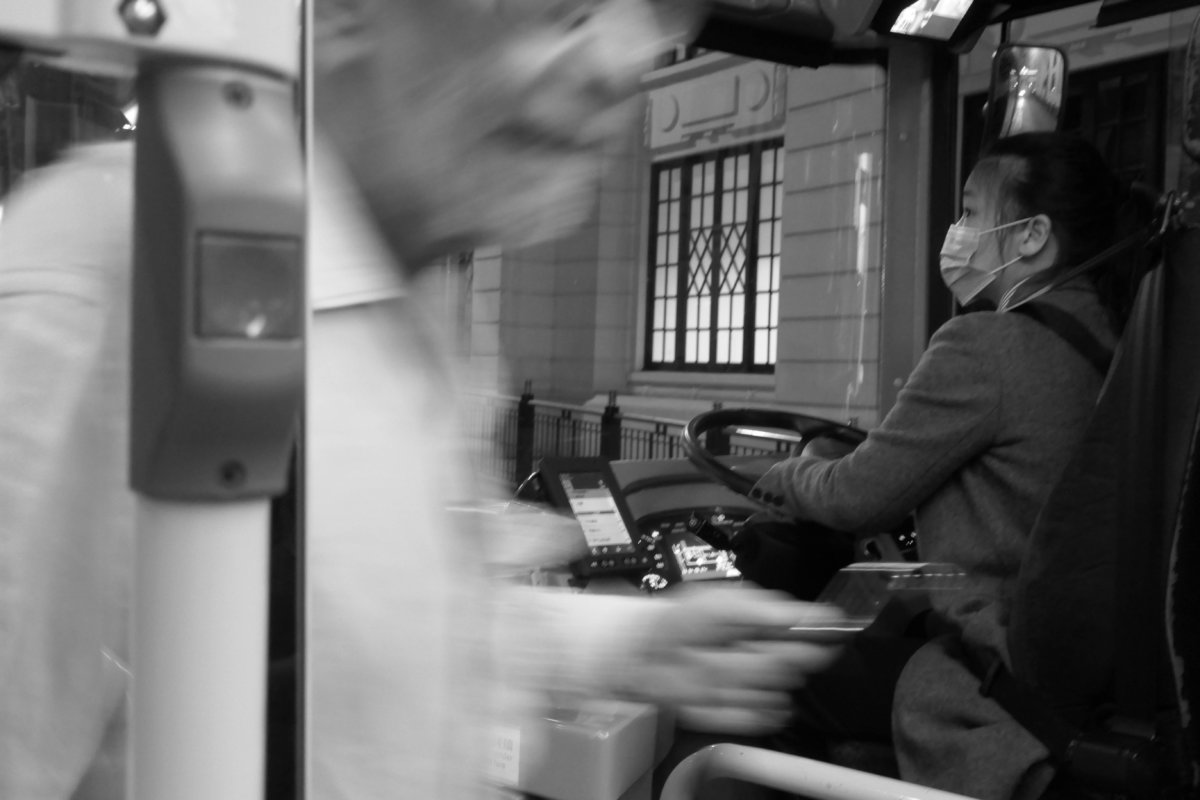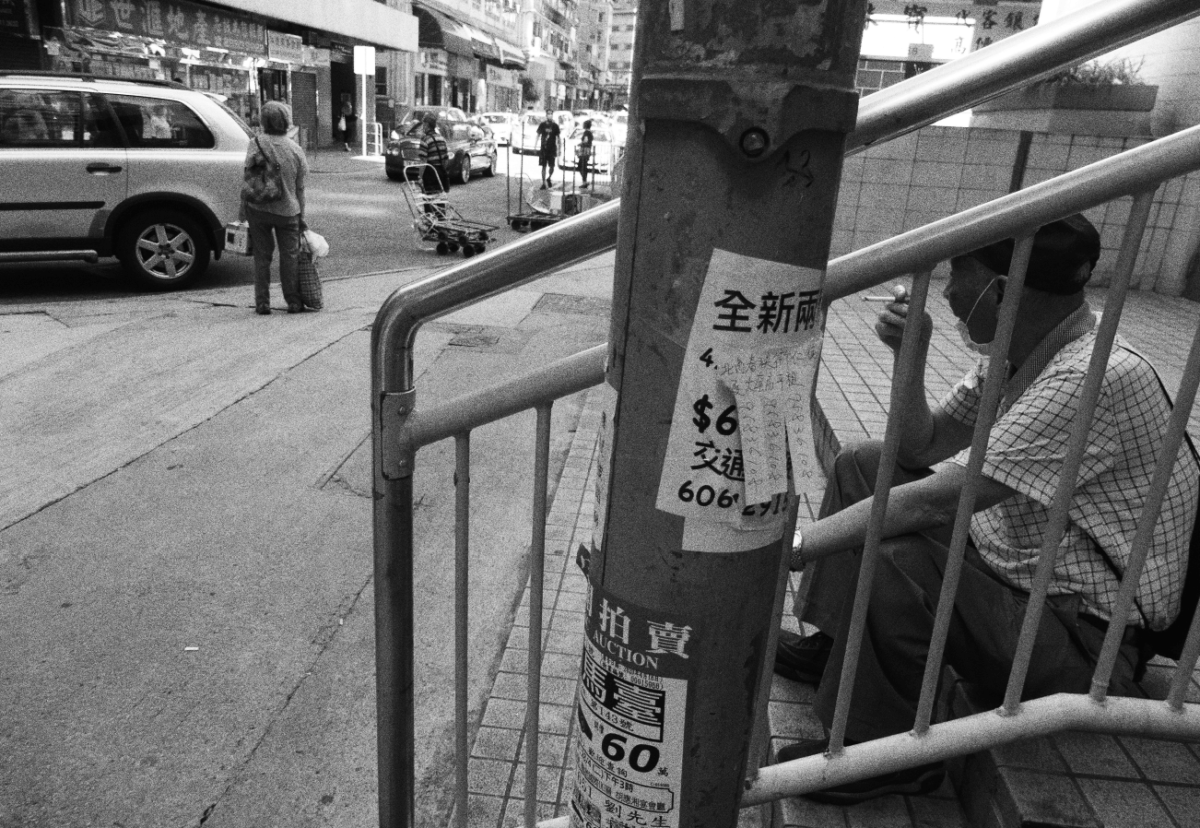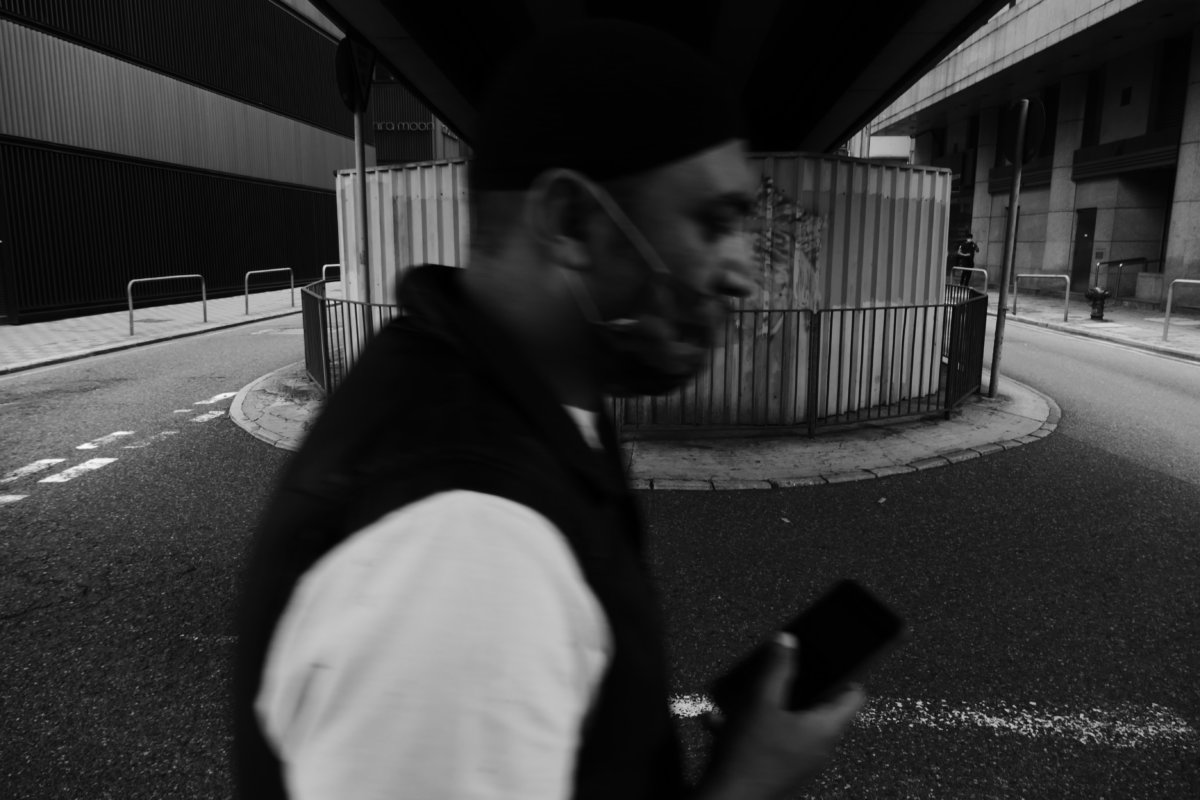My usual hectic Hong Kong capitalist lifestyle has been clipped by Covid-19. I’m no longer executing my imaginary multi-million dollar share trades, or, daydreaming of opening Hong Kong’s best live alternative-music venue. I have ceased lazing on my Mediterranean anchored ghost super-yacht, and long ago, I drank my fictitious supply of excellent Bordeaux. I have stopped visiting my castle-in-the-air Shenzhen computer chip factory and no longer attend secret hot-pot banquets, washed-down with toasts of mao tai and hearty red-cheeked laughs with my Chengdu suppliers and their supplied ‘entertainment.’
Those dreams could have been just a few months ago. Covid-19 has pushed a much tougher economic future: now, with little room for dreaming big.

(Photo: John Batten)
My nights have become simpler since March. Homebound, I prepare dinner, eat, listen to the radio and, then have a little old-fashioned promenade around Sheung Wan. I watch the dogs being walked by their owners (usually, hand-in-hand happy face-masked couples wearing athletic lycra leggings), or, walked by their owners’ helpers (also face-masked, also wearing athletic lycra leggings). I read in the remaining open section of the closed park. In one worried moment, of getting dementia in the future, I start doing daily newspaper word puzzles. I admit, I am relieved to often attain the puzzle’s ‘very good’ level. So, should I now dismiss fears of premature dementia and stop doing the daily puzzle? I enjoy the challenge, I enjoy the test: and the ‘excellent’ level is still to be reached! I can appreciate locked-in children: they need the challenge of their school classmates who jostle and compete in a real classroom.
This Covid-19 change to my routine has allowed time to dream, to reminiscence, to let the past interrupt the present as cinema, live music, concerts, other diversions, and late-nights snacks are not temporarily possible. My imagination often returns to childhood and the good times of play and family closeness and safety. Triggered by Covid-19 as this year’s dominant event and its blanket media news coverage, I have over the last weeks recalled the major ‘world’ news-stories (then, as now, often USA dominant) during the latter years of the 1960s when I was a primary school student in Australia. A childhood that was, frankly, safe and privileged.

(Photo: John Batten)
Those news stories in the late 1960s were dominated by: the Vietnam War; the Biafra famine in Nigeria; the space race between Russia and the USA, culminating in the 1969 Apollo 11 moon landing; the cultural and social changes epitomized by counter-culture movements, peace rallies, people power, anti-war protests, the ‘generation gap’, bra-burning by a growing feminist movement, the Pill, free sex and sexual freedom; TV and all the great programmes we watched; rock music and pop festivals such as Woodstock; drug busts and drug overdoses; race riots in Amerika (note the spelling); airline high-jackings and the wars and troubles in the Middle East (seemingly then, as now, on repeat-mode); the 1968 Paris student protests; the invasion of Czechoslovakia by the Soviet Union; technological innovations such as small electronic transistors replacing large valves; LBJ’s shock decision not to re-stand for President of the USA, then Robert Kennedy’s assassination, and the eventual election of Richard Nixon that triggered a host of events and USA policy changes: from the Watergate scandal to diplomatic recognition of the communist People’s Republic of China. These events are from the past, but just change the country and the key players’ names, and it all sounds so similar as today.
I also heard vague, child-(mis)understood reports on the nightly TV news about the Hong Kong influenza outbreak. It was July 1968 and the first case of the ‘Hong Kong Flu’ had been diagnosed in Hong Kong, but probably originated on the mainland. It then spread around the world in two waves during late 1968 and throughout 1969. The Hong Kong Flu was, as is Covid-19, a coronavirus, identified as H3N2 – the virus most commonly referred now as ‘seasonal influenza’, and which your flu shot gives some protection. However, even now in the USA, more than 30,000 yearly deaths are attributed to influenza.

(Photo: John Batten)
The Hong Kong Flu pandemic killed over one million people worldwide. Europe and the USA experienced many deaths; Germany for example had 60,000 deaths. Undoubtably, many uncountable deaths occurred in the world’s poorer countries. As a child, I was oblivious: our lives carried on without facemasks, without lock-downs, without alcohol gel and hand-wipes. When the pandemic subsided, there was no “new normal!”
Politicians around the world – many of my age – have described Covid-19 as unprecedented. But, history tells it differently: Covid-19 is the fourth major coronavirus pandemic to encircle the world since the Spanish Flu outbreak in 1919. We have experienced Covid-19 before: four times in the last hundred years.
It last happened when I was a child. And, it isn’t a dream. And, then, we all carried on.

(Photo: John Batten)






